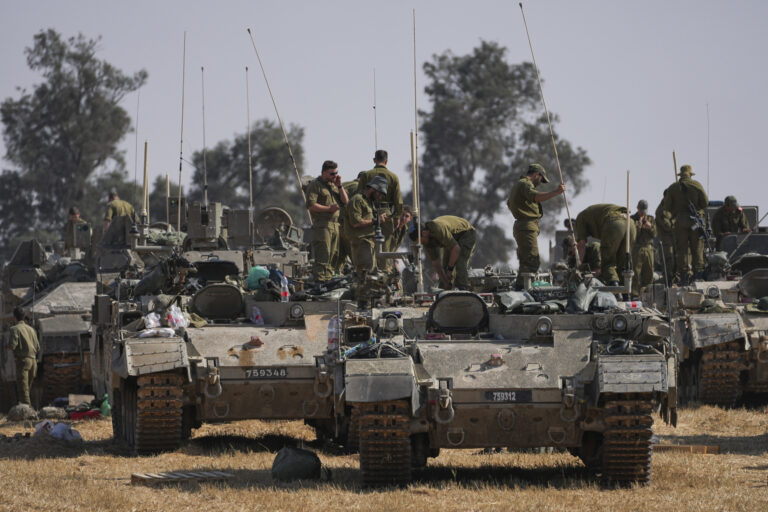By Rabbi Yair Hoffman for 5tjt.com
“You’re not my mother! So I don’t have to honor you.”
“Yes you still do, young lady.”
Everyone knows about the Mitzvah of honoring parents – it is one of the Ten Commandments. Indeed, according to the Gemorah in Kiddushin, it is also one of the natural laws that the entire world is well aware of.
- ** There is a Yesoma who, boruch Hashem, just got engaged. If anyone would like to assist in making her chasuna please donate here or contact the author.**
But what about step-mothers or other relatives? What about older brothers, uncles, aunts, and in-laws? And if there is such an obligation? Are the obligations the same as to parents or are there differences?
The first thing we must do is differentiate between obligations that stem from “Kavod – honor” and obligations whose source is “Moreh” or showing awe. For example, the obligation to serve one’s father or mother comes from the obligation of “honor.” On the other hand, the fact that we don’t sit in his or her seat comes from Moreh. Most of the obligations that apply to “other relatives” come from “Kavod.” These issues are dealt with extensively in volume six of a work entitled “LeRayacha Kamocha” by Rabbi Dovid Ariav.
STEP PARENTS
Let’s start with the step-mom and step-dad. The Gemorah in Kesuvos (103a) tells us that the word “Es” in Kabaid es avicha comes to include the step-mother (see Shulchan Aruch YD 240:21).
There is a debate in the Rishonim whether this obligation is biblical, the Rambam (Hilchos Mamrin 6:15) holds that it is biblical and the Meiri (on Kesuvos 103a) holds that it is only Rabbinic. We rule that it is Biblical. The obligation, however, stems from Kavod and not Moreh (See Betzail HaChochma 3:95).
Technically, the reason why we don’t call parents by their first names is Moreh – so although one could technically call them by their first names, the Minhag in Klal Yisroel seems to be not to do so. [One should also be careful not to call them Dad or Mom in front of one’s own parents unless one is absolutely sure that they do not mind at all – Author’s extrapolation from letter #9 of Rav Chaim Kanievsky Shlita.]
DURATION OF OBLIGATION
The obligation is also only during the lifetime of the parent. After the parent has passed away, the Chayei Odom (67:22) writes that the obligation is only Rabbinic. The Shulchan Aruch (YD 240:21) calls it a “Davar Hagun” – a proper thing to honor them. It would seem that the Chaeyi Odom is actually arguing with the Shulchan Aruch when he writes that it is a Rabbinic obligation. The simple indication of the Shulchan Aruch is that it is a good and proper ethical imperative, but not a full halachic obligation.
OLDER SIBLINGS
Let’s move on to the older brother and sister.
Sister???
Yes, sister. But let’s start with the brother. The Gemorah in Kesuvos (103a) tells us that the extra Vov in “v’es imecha “ comes to include the older brother. The rationale is because it is disrespectful for a parent if their descendents are treated improperly, according to the Ramban (Hasagos LeSefer haMitzvos of the Rambam Shoresh 2). The Minchas Chinuch (#33) understands this obligation to be Biblical in origin, while the Aruch haShulchan (YD 240:43) understands it to be Rabbinic. Here too the obligation stems from kavod – not moreh – he may thus sit in his older brother’s seat (although if he is physically bigger it may not be advisable).
Is this obligation limited to the firstborn son, i.e. the eldest son or does it apply to all older brothers? This is a debate between the Arizal as cited by the Birchei Yoseph (in YD 240) and the Kitzur Shulchan Aruch who rule that it applies to all older brothers versus the Gilyon Maharsha, the Chsam Sopher and the Ramban on Bereishis (32:5) who rule that it is just the eldest brother.
Although one would think that the litvisha Poskim would rule in accordance with the Gilyon Maharsha on this issue, it seems that Rav Elyashiv zt”l as cited in Kvod Horim 16:5 rules that the obligation is toward all older brothers.
Since Rav Elyashiv is ruling like the aforementioned Birchei Yoseph’s citation of the AriZal – there would be no distinction between that and the other ruling of the AriZal cited by the Birchei Yoseph – that the obligation applies to older sisters as well.
IN LAWS
The Shulchan Aruch rules that mothers in law and fathers in law must also be honored (SA YD 240:24). It is debatable whether this obligation is Biblical or Rabbinic. The obligation, once again stems from honor and not Moreh. One must always speak to them respectfully and with honor.
GRANDPARENTS
There is also an obligation to honor grandparents. This is the ruling of the Ramah in a responsa (#118). Although the Maharik (Shoresh 30) rules that this is not really an obligation, most Poskim reject the view of the Maharik. Indeed, the Ramah’s view is so accepted that the Minchas Elazar (3:33) rules that the honor of a grandparent has precedence to that of a father-in-law. The honor that is extended to a grandparent stems from Kavod and not Moreh, once again.
UNCLES AND AUNTS
According to Rabbeinu Yonah in his Sefer HaYira (203) there is an obligation to honor one’s uncle and aunt from either his father’s side or his mother’s side. The source is a Kal VaChomer, a fortiori argument from the obligation to honor a step-parent. Rabbi Dovid Ariav wishes to limit the words of Rabbeinu Yona to only uncles and aunts that are older than the parents. It seems to this author, however, that another source might be the fact that they are descendants of one’s grandparents and it would be according them honor if one honor’s their children, similar to the Ramban in the Sefer haMitzvos.
All of the above obligations concerning “other relatives” only apply, of course, if the “other relative” is not halachically considered an evil person. If they are evil then one may not disrespect them, but there is no obligation of honor. At times, a person’s relationship could be categorized as “toxic” as well and a qualified Posaik should be consulted as to how to best deal with the relationship. There are many factors that should be considered and often people are too quick to decide that the relative is disqualified for the honor truly due them.
The author may be reached at [email protected].
- ** There is a Yesoma who, boruch Hashem, just got engaged. If anyone would like to assist in making her chasuna please donate here or contact the author.**












4 Responses
Great graphics
The picture of Lady Tremaine is a nice touch.
Thank you for this article. I really enjoyed it. I would like to ask you for a personal favor.
I am a stepmother to several orphans and I work tirelessly 24/7 doing chessed. A job that is quite often termed a “thankless” job. However, I give them all my heart, energy, love, chinuch and emotions to the best of my ability.
I would greatly appreciate if you can change the picture icon. Just because Disney decided to label a stepmother as the stereotypical evil stepmother of Cinderella, does not mean that it is true. It’s is sad that the word stepmother conjures up such thoughts and images when in fact so many women including myself dedicate so much to our stepchildren.
Thank you and ksiva vvhasima tova.
Thank you so much for changing the icon! This gesture truly touched my heart… The icon you used to replace the old one is an excellent tribute to the many special stepmothers worldwide. Tizku l’mitzvos!